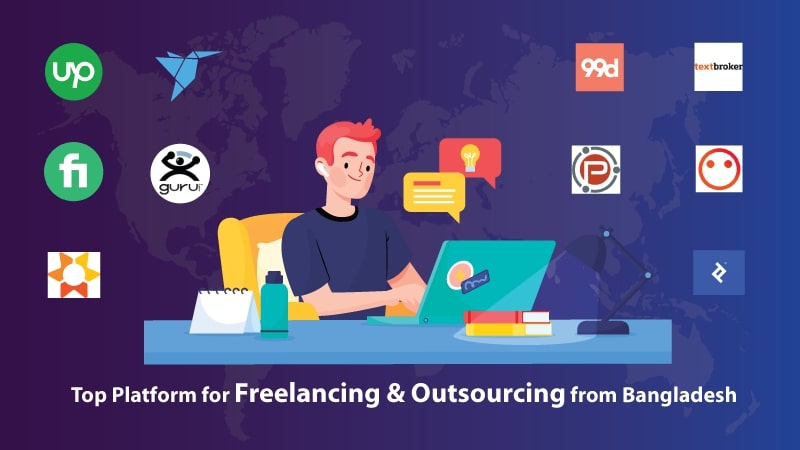A Beginner’s Guide to Freelancing: How to Start and Succeed

You've probably seen people on social media saying they "work from anywhere" or are their own boss. Many of them are doing something called freelancing, working for clients or companies independently rather than being a full-time employee.
It’s one of the fastest-growing ways to make money online, and the best part? You don’t need a degree or a fancy office to get started.
What Is Freelancing?
Freelancing means offering your skills or services to clients on a project or contract basis. You can choose who you work with, what projects you take, and how much you charge.
Some common freelance jobs include:
- Writing (articles, blogs, copywriting)
- Graphic design
- Web development
- Video editing
- Social media management
- Virtual assistance
If you have a skill someone is willing to pay for, you can probably freelance it.
Why Do People Choose Freelancing?
Freelancing has exploded in popularity for a reason. Here’s why people love it:
- Freedom to work from anywhere – home, a café, or a beach.
- Flexible schedule – You decide when and how long you work.
- No boss – You’re your own manager.
- Multiple income streams – You can work with several clients at once.
Of course, it’s not all sunshine, there’s no guaranteed paycheck, and you have to find your own clients. But for many, the freedom is worth it.
What Do You Need to Start?
Getting started as a freelancer doesn’t require much. Here’s what helps:
- A skill people are willing to pay for (writing, design, coding, etc.)
- A computer and internet connection
- A portfolio or samples of your work (even mock projects can work!)
- A profile on freelance platforms (like Upwork, Fiverr, or Freelancer)
- Good communication and time management
Optional, but helpful:
- LinkedIn profile to network professionally
- A personal website or online portfolio to showcase your work
- An invoicing tool (like PayPal, Wise, or Wave)
Where Can You Find Freelance Work?
There are tons of websites and platforms where clients are looking for freelancers:
- Upwork – One of the largest freelancing platforms
- Fiverr – Great for beginners offering small, defined services
- Freelancer.com – Another marketplace for various gigs
- Toptal – For experienced freelancers in tech and design
- PeoplePerHour, Guru, and FlexJobs – More platforms with job listings
You can also find work by:
- Joining Facebook groups or LinkedIn communities
- Reaching out to small businesses
- Asking past employers or contacts for referrals
How Much Can You Earn?
Freelance income can range from side hustle money to full-time income, and beyond. It depends on:
- Your skill and experience
- How much you charge per hour/project
- How many clients you work with
Some freelancers start by charging $10–$20 per hour. As you gain experience, it’s not uncommon to earn $50, $75, or even $100+/hour depending on your niche.
Pro tip: Don’t undersell yourself. Charge based on the value you provide, not just your time.
Common Mistakes to Avoid
New freelancers often fall into similar traps. Here’s what to avoid:
- Working for free “for exposure” – Your time is valuable.
- Not setting clear expectations – Always agree on the scope, price, and deadline before starting.
- Taking on too much – Burnout is real. Say “no” when needed.
- Underpricing your services – Low rates attract low-quality clients.
- Neglecting communication – Keep clients updated and be professional.
Tools That Help Freelancers Succeed
Here are some handy tools to make freelancing easier:
- Trello or Notion – For organizing projects and to-do lists
- Grammarly – For checking your writing
- Canva – For designing graphics or presentations
- Clockify or Toggl – For tracking your hours
- PayPal, Wise, or Payoneer – For getting paid internationally
As you grow, you can invest in better tools, but start simple.
Is Freelancing Right for You?
Freelancing is perfect if you:
- Like working independently
- Want control over your schedule
- Are self-motivated and organized
- Enjoy learning new things and working with different clients
But it’s not ideal if you need a steady paycheck or don’t like marketing yourself.
Final Thoughts: Start Small, Stay Consistent
Freelancing isn’t a shortcut to overnight riches, but it is one of the most accessible ways to build income and freedom using skills you already have (or can learn).
Start by picking one service. Offer it to one client. Then another. Then raise your rates. Bit by bit, you’ll build a solid reputation and a real business.
Whether you're doing it part-time for extra cash or turning it into a full-time career, freelancing can open doors to a flexible and rewarding lifestyle.